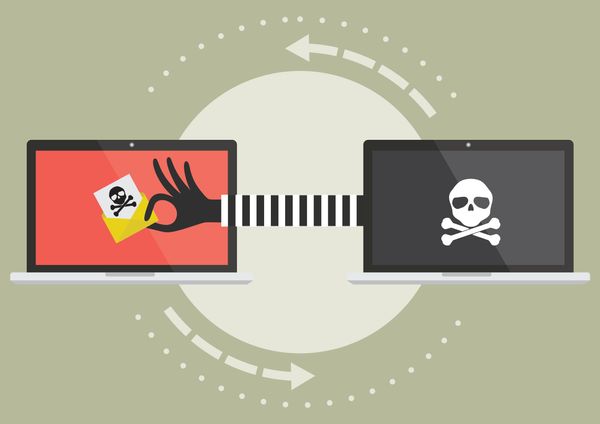Children with both smartphone and computer spend up to five hours a day on devices

One in seven minors owns both a smartphone and a computer, while time spent using these devices increases from three hours a day at five years old to almost five hours in adolescence, Bitdefender research shows.
- Some 15 percent of children under 18 years of age use a smartphone and a laptop/computer simultaneously: as they grow up the time online almost doubles
- On average, boys spend a third more time than girls using their devices
- After 12 years of age, kids use smartphones more than computers
Fig.1. Amount of time per device spent on average by children that have both PCs and mobiles; source: Bitdefender internal telemetry
Children aged five to 17 spend, on average, two hours daily using their computer, while the time spent using the mobile phone steadily increases from one hour to more than two and a half by the time they become adults. After the age of 10, the difference between boys and girls becomes significant, as boys spend an hour more online than girls, mainly due to computer games and tech savviness.
Intelligent use of supervised access to the Internet, and employing basic behavioral rules online are key in child rearing, as technology offers easy access to all types of content. Excessive use of these devices at such a young age can harm the physical and emotional development of the child, exposing them to unwanted risks.
As user information is distributed without restriction on social networks, any external user can profile a child. Social platforms offer the possibility to tweak the degree to which information about the user is made available, allowing parents to restrict access to a closed group of friends or family members, for instance. Children with public profiles are highly exposed to wrongdoers. They can be contacted directly – either to be harassed or infected with malware. This is why social platforms have a minimum age requirement (typically 14 years).
„Technology helps children acquire skills at a young age and it”s extremely useful in their education and intellectual development,” Bitdefender”s Senior eThreat Analyst Bogdan Botezatu says. “However, parents must find a proper balance between the amount of time spent enjoying their devices and the time dedicated to other real-life activities. Moreover, parents should make sure their children are not left completely unsupervised while they are connected.”
Bitdefender”s internal telemetry shows that one in three visitors to porn video sites is a minor, and recent reports released by Europol reveal that victims as young as 7 years old are being targeted online for webcam blackmailing and extortion. Based upon information collected by the US National Centre for Missing and Exploited Children”s CyberTipline, Europol”s report shows that when targeting a minor, offenders have two main motivations: a sexual interest in children, where the objective of the extortive exchange is the procurement of sexual material (photos and/or videos depicting the child) or a sexual encounter offline; an economic interest, where the objective is to gain financially from the extortion.
Here are some tips for parents who want to keep their children safe online as well as offline:
- Avoid using smartphones or PCs to keep your kid busy and buy yourself some time to relax. Without parental guidance, kids could spend hours playing online or surfing the Internet.
- Place the family computer where you can see the monitor.
- Set rules for computer use for your children. Talk with them freely about why you are concerned.
- Advise your children not to respond to spam, instant messages or e-mails with obscene or aggressive content.
- When children create social media accounts, help them use privacy protection features. Encourage them to restrict the information exposed, and make sure they know their online friends in real life.
- Advise your kids to be careful installing Android apps. Some contain aggressive adware and malware that sends messages to premium numbers. Install games and other Android apps only from official market places.
- Use security solutions with parental controls to watch over kids online.
This research was conducted by Bitdefender in April 2017 covering users of Bitdefender”s Parental Advisor. Bitdefender Parental Advisor is included in Bitdefender Internet Security, Bitdefender Total Security and Bitdefender Family Pack. Parental Advisor blocks inappropriate content, restricts Web access between certain hours and helps parents remotely monitor their children”s online activity.
The analysis was performed by Bitdefender researcher Catalin Munteanu.
“Say No” awareness raising campaign
Bitdefender supports Europol’s #Say NO awareness campaign regarding ‘sextortion” or “webcam blackmailing”, the online coercion and extortion of children – a form of digital blackmail where sexual information or images are used to extort sexual material, sexual favours or money. The campaign includes a short film, available in all EU languages, which helps people to recognise a potential sextortion approach, provides online advice and highlights the importance of reporting the crime to the competent national authorities.
tags
Author
Former business journalist, Razvan is passionate about supporting SMEs into building communities and exchanging knowledge on entrepreneurship.
View all postsRight now Top posts
Start Cyber Resilience and Don’t Be an April Fool This Spring and Beyond
April 01, 2024
Spam trends of the week: Cybercrooks phish for QuickBooks, American Express and banking accounts
November 28, 2023
FOLLOW US ON SOCIAL MEDIA
You might also like
Bookmarks









